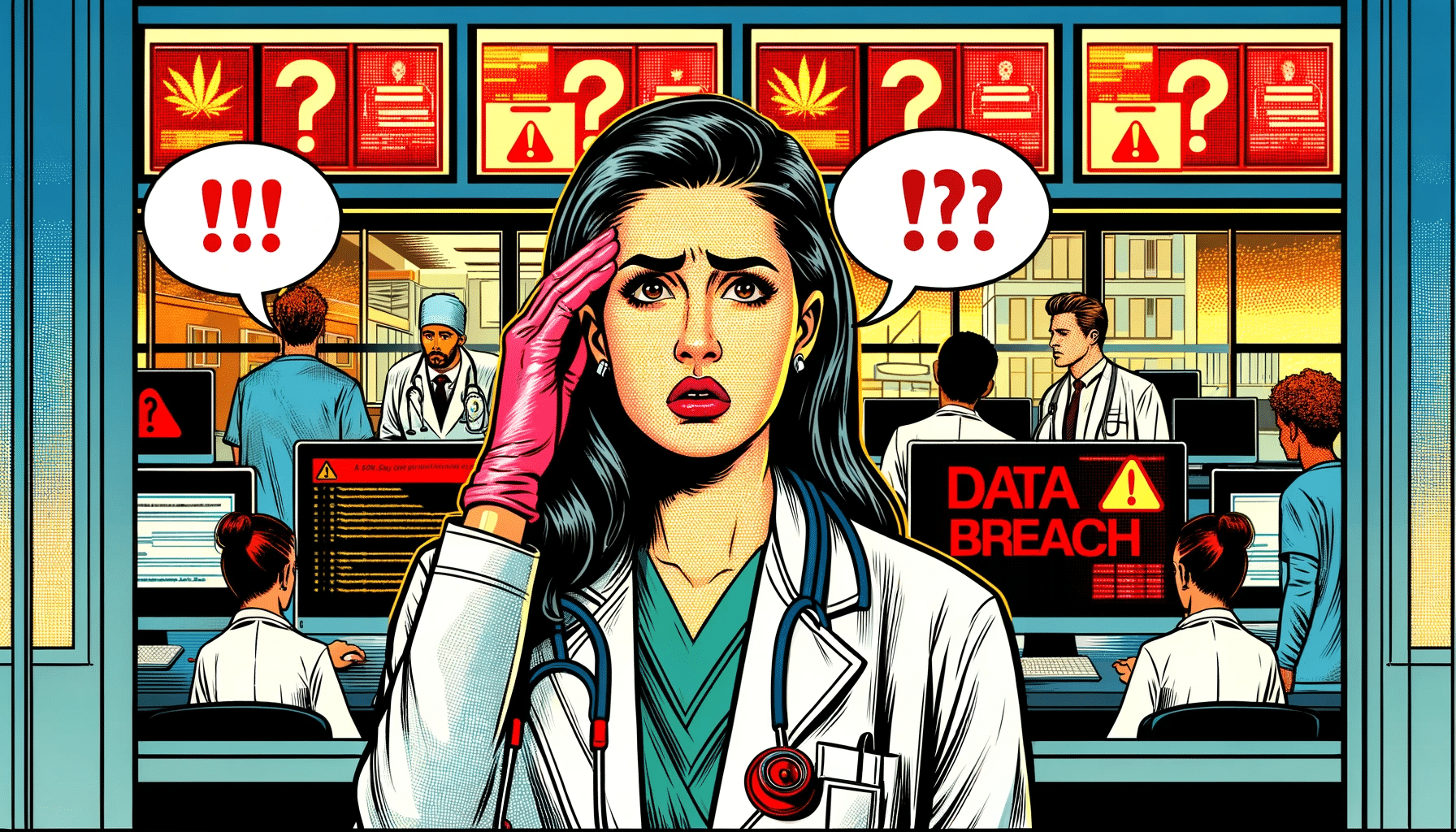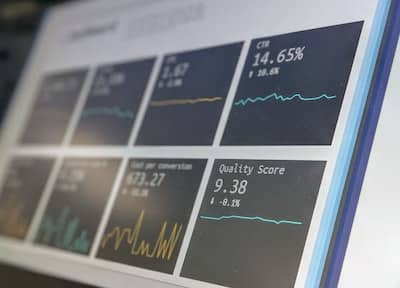
Tim Mektrakarn
June 3, 2024
Streamline Compliance with HIPAA Audit Automation
Table of contents
- Understanding the HIPAA Audit Process
- Consequences of HIPAA Violations
- Challenges in Manual HIPAA Auditing
- Data Breaches and Lost of PHI
- Implementing HIPAA Audit Automation with Drata
- Drata’s Focus on HIPAA Continuous Compliance
- How Drata Simplifies HIPAA Auditing
- Comparing Manual and Automated HIPAA Audits
- Preparing for and Transitioning to Automated Audits
- Bright Defense Can Help You Automate HIPAA
- Frequently Asked Questions
HIPAA audits can be a daunting process for healthcare organizations. These audits are essential to ensure the security and privacy of patient data, but they can also be time-consuming, inefficient, and prone to human error when done manually. This blog post will explore how automation can help streamline the HIPAA audit process. We’ll take a deep dive into HIPAA audits, their importance in healthcare organizations, and the challenges faced during manual audits. We’ll discuss implementing Drata’s Compliance Automation Platform to simplify the HIPAA auditing process. By the end of this post, you’ll better understand how automation can help you streamline your HIPAA audits while ensuring regulatory compliance and protecting patient data.

Understanding the HIPAA Audit Process
The HIPAA audit process is essential for ensuring compliance with regulations in the healthcare industry. It involves thoroughly assessing security measures to safeguard sensitive data, including PHI and ePHI. Covered entities must understand this procedure to avoid potential violations of the HIPAA law. Automation can streamline and simplify the entire audit process, making it more efficient and effective.
Defining a HIPAA Audit
A HIPAA audit involves assessing potential risks and vulnerabilities, upholding patient data confidentiality, and ensuring compliance with privacy and security rules. Healthcare providers need to understand this process, with automation enhancing its efficiency. Leveraging technology to streamline the audit definition process can greatly benefit the healthcare industry.
The Importance of HIPAA Audits
In the healthcare industry, HIPAA audits play a crucial role in safeguarding sensitive data and ensuring compliance with the law. These audits promote accountability and data security, and provide peace of mind to healthcare organizations. Automation enhances the importance of HIPAA audits by simplifying the process and improving efficiency. Healthcare providers benefit from streamlined audits, ensuring the protection of PHI and compliance with HIPAA regulations.

Consequences of HIPAA Violations
Consequences of non-compliance with HIPAA regulations can be severe, leading to legal and financial repercussions. Breach notification rules mandate reporting potential data breaches, jeopardizing patient privacy. Automation mitigates the risk of violations, ensuring compliance with HIPAA law, protecting sensitive data in the healthcare industry. Continual monitoring and reporting play a crucial role in maintaining HIPAA privacy and security.

Challenges in Manual HIPAA Auditing
Manual auditing processes are often inefficient, time-consuming, and prone to human error. These drawbacks make maintaining consistent compliance monitoring challenging. HIPAA audit automation addresses these issues by streamlining the auditing process, reducing time and resource consumption, and minimizing the potential for human errors. This results in more reliable and consistent compliance monitoring, which is crucial for protecting patient data.

Data Breaches and Lost of PHI
Data breaches and the loss of Protected Health Information (PHI) are significant concerns in the healthcare industry. Traditional manual audits may not be equipped to effectively identify vulnerabilities and prevent such breaches. However, automation provides a robust solution by implementing real-time monitoring and alert systems. Automated HIPAA audit processes enhance data security measures, reducing the risk of data breaches and the loss of PHI. Healthcare organizations can rely on automation to safeguard sensitive information and maintain patient trust.
Implementing HIPAA Audit Automation with Drata
Automating HIPAA audits involves using software tools like Drata that facilitate continuous compliance monitoring. This includes regular policy reviews, risk assessments, and management of breach notification processes. Automation aids in maintaining up-to-date documentation and simplifies remediation processes, ultimately contributing to a more efficient and accurate HIPAA compliance strategy.

Drata’s Focus on HIPAA Continuous Compliance
Drata’s automation simplifies continuous monitoring and reporting, streamlining risk assessment and remediation efforts for healthcare organizations. Covering entities find compliance software implementation easier, with best practices for sensitive patient data readily available. Drata also facilitates compliance with breach notification rules, offering peace of mind in navigating the complex landscape of HIPAA privacy and regulation.

How Drata Simplifies HIPAA Auditing
Drata simplifies evidence collection via integrations to various tech stacks like Google Cloud Platform, Amazon Web Services, Microsoft Azure, GitHub, Jira and much more. Policies are pre-mapped to controls which are monitored with various automated tests to ensure continuous compliance is achieved. Drata even offers HIPAA Security Training within the platform.
Faster Remediation
Drata’s HIPAA audit automation enables healthcare organizations to remediate compliance issues faster. The platform identifies and prioritizes areas of non-compliance, making it easier for organizations to take immediate action. With Drata, healthcare providers can swiftly address vulnerabilities and ensure sensitive patient data is protected. By streamlining the remediation process, Drata helps organizations maintain compliance and avoid potential penalties or breaches.
Improved Reporting and Analytics
Manual audit processes often struggle with generating comprehensive and actionable reports. Automation streamlines reporting by collecting data in real-time and providing deeper insights. HIPAA audit automation practices offer improved reporting and analytics capabilities, enabling healthcare organizations to identify patterns, trends, and potential compliance gaps. Real-time data collection and analysis provide a more accurate representation of an organization’s HIPAA compliance status. These insights empower organizations to make informed decisions, address vulnerabilities promptly, and continuously improve their security measures.

Comparing Manual and Automated HIPAA Audits
Comparing manual and automated HIPAA audits enables organizations to streamline audit processes, reducing human error and ensuring compliance. While manual audits are time-consuming, automation offers real-time insights for a proactive approach to compliance management. Automation enhances accuracy and consistency, crucial for meeting HIPAA requirements, allowing organizations to respond promptly to potential risks.
Preparing for and Transitioning to Automated Audits
For healthcare organizations looking to transition to automated HIPAA audits, preparation involves understanding HIPAA compliance software requirements and planning for the various integrations, migrating or establishing new policies and procedures, and ensuring effective documentation practices. Organizations should also prioritize data security measures and train staff on the new system. A well-planned transition strategy, including risk assessment and remediation planning, is key to successful implementation.
Bright Defense Can Help You Automate HIPAA
In conclusion, automating HIPAA audits is a game-changer for healthcare organizations. Manual audits are time-consuming, prone to human error, and difficult to maintain consistency. By implementing HIPAA audit automation, organizations can streamline the process and ensure efficient and accurate monitoring of patient data security. Drata’s Compliance Automation Platform offers features that simplify HIPAA auditing, including risk assessment and management, continuous monitoring and reporting, and regular policy and procedure review. The benefits of automation include increased efficiency, cost and time savings, and improved compliance. Don’t miss out on the opportunity to enhance your HIPAA audit process. Book a free demo with Bright Defense today and experience the benefits of automated audits firsthand.
Frequently Asked Questions
What is HIPAA compliance software?
HIPAA compliance software is designed to assist healthcare organizations in aligning their practices with HIPAA regulations. By automating risk assessments, security measures, and compliance monitoring, the software streamlines the auditing process. Popular options include Drata, Vanta, and Carbide. Avoid costly penalties by implementing HIPAA compliance software.
How can automation help with HIPAA audits?
Automation plays a crucial role in streamlining HIPAA audits. By reducing manual work, automated tools collect and organize data accurately, ensuring compliance with HIPAA regulations. This improves efficiency, consistency, and reduces the risk of errors or omissions.
What is HIPAA compliance and why is it important?
HIPAA compliance refers to adhering to the regulations set forth by the Health Insurance Portability and Accountability Act of 1996. It is crucial because it safeguards patients’ sensitive health information, ensuring it is not disclosed without their consent. Non-compliance can result in hefty fines and damage an organization’s reputation. Automation tools streamline HIPAA audits by automating compliance tracking and monitoring.
How often is a HIPAA audit conducted?
HIPAA audits, conducted by the Office for Civil Rights (OCR), ensure compliance with HIPAA regulations. Typically, covered entities can expect an audit every 2-3 years. The OCR may also conduct audits in response to complaints or breaches. Streamlining the audit process with automation tools helps ensure compliance.
Does HIPAA require audit trail?
Yes, maintaining audit trails is a requirement under HIPAA. These trails help track access to ePHI and ensure compliance. Covered entities and business associates must implement audit controls for ePHI. Automation can streamline the process of creating and maintaining HIPAA-compliant audit trails.
How many HIPAA audit programs are there?
There are two main HIPAA audit programs: the Privacy Rule Audit Program and the Security Rule Audit Program. The Privacy Rule Audit Program focuses on protecting patient privacy, while the Security Rule Audit Program focuses on protecting electronic patient health information. Both audit programs aim to ensure compliance with HIPAA regulations. Automation can help streamline the audit process and ensure that all necessary steps are taken to comply with HIPAA regulations.
How exactly is HIPAA compliance achieved?
HIPAA compliance is achieved through a combination of administrative, physical, and technical safeguards. Regular risk assessments and implementation of appropriate security measures are necessary to protect patient information. Policies and procedures for handling PHI, employee training, and breach notification are also required. Automation tools can streamline HIPAA audits by automating compliance tasks and providing detailed reports.
Why do MSPs need to offer HIPAA compliance?
MSPs should offer HIPAA compliance services as they manage healthcare organizations’ IT infrastructure. Non-compliance can lead to fines and reputation damage. By offering these services, MSPs differentiate themselves and attract more clients in the healthcare industry, providing peace of mind with protected patient data.
Why types of organizations does HIPAA compliance apply to?
HIPAA compliance applies to a wide range of organizations that handle protected health information (PHI). This includes healthcare providers such as hospitals, clinics, and private practices. It also applies to health plans, such as insurance companies and government programs like Medicare and Medicaid. Additionally, HIPAA compliance extends to healthcare clearinghouses, which process and transmit PHI electronically. Finally, any business associates or vendors that handle PHI on behalf of covered entities are also required to comply with HIPAA regulations.
Get In Touch



